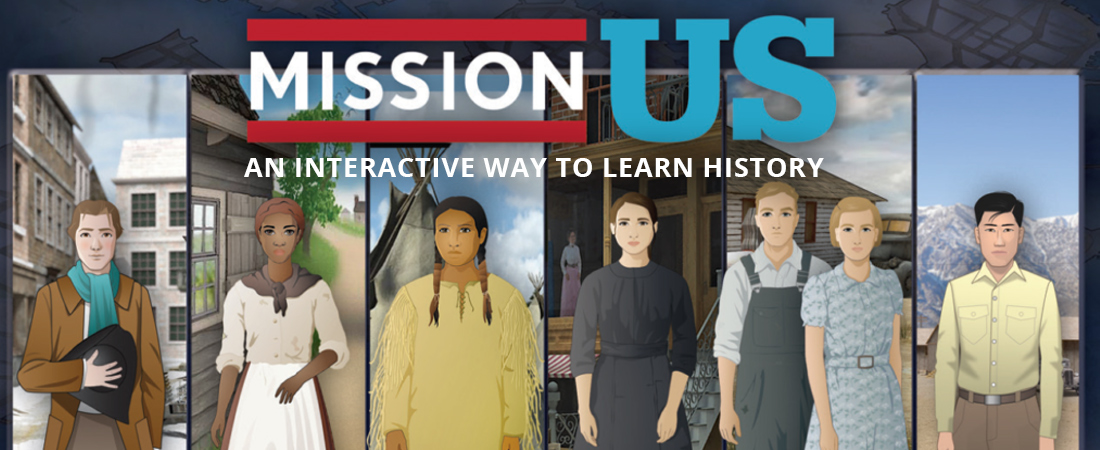EDC to Lead Efficacy Study of Mission US History Role-Playing Game

EDC has been awarded a grant from the Institute of Education Sciences (IES) at the U.S. Department of Education to conduct a study of Mission US, a series of popular online role-playing games that seek to enhance students’ historical literacy.
The study, Mission US: US History through Young People's Eyes, will examine the impact of Mission US on eighth-grade students’ historical content knowledge, ability to analyze and interpret historical documents, historical empathy and perspective-taking, and motivation to learn history. Mission US has won many honors, and millions of students nationwide have played the games. Yet to date, there has been no rigorous study of the efficacy of Mission US in fostering students’ history learning.
Over the next four years, EDC and its partners, WNET, the American Social History Project, and Electric FunStuff, will carry out the first rigorous efficacy study of Mission US in a national sample of urban middle schools. In addition, the study team will design and test a dashboard tool in Mission US to help teachers evaluate students’ understanding, differentiate instruction, and adjust curriculum. The findings will produce new evidence of the impact of Mission US on students’ social studies outcomes and provide key insights into effective implementation of Mission US in the classroom.
“We are so excited to be leading the first efficacy study of Mission US,” said principal investigator Joy Lorenzo Kennedy. “Mission US is already widely used in the classroom, and findings from several small studies indicate that Mission US can enhance students’ history learning. Yet rigorous research is needed to demonstrate that student use of the games, in combination with thoughtful teacher support, can produce positive impacts on students.”
“The Mission US games have the potential to address a significant challenge for our nation,” added co-principal investigator Bill Tally. “Only 15% of U.S. eighth-graders scored at or above proficient on the most recent National Assessment of Educational Progress in History—a decrease from 2014. To be informed citizens, it is vital for our young people to understand our country’s history.”